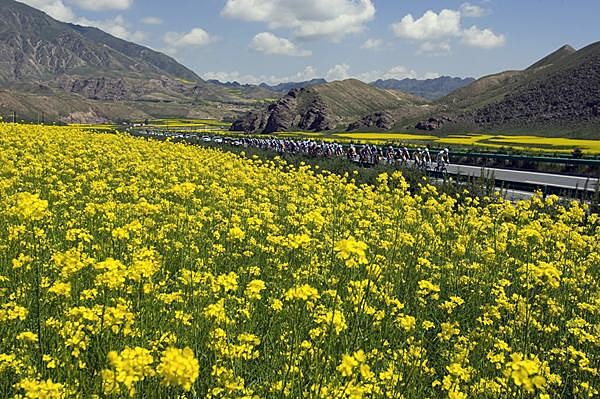China: the last frontier?
As the cyclists of the world descend upon Beijing, one might not realize that many of these riders...
The latest race content, interviews, features, reviews and expert buying guides, direct to your inbox!
You are now subscribed
Your newsletter sign-up was successful

As the cyclists of the world descend upon Beijing, one might not realize that many of these riders will have never set foot in Asia until they arrive for the Olympic Games. Some, however, might have taken in the country's biggest stage race as preparation for the Games. Cyclingnews' Paul Verkuylen was in the rarified air of the Tibetan plateau for the Tour of Qinghai Lake, and offers some insight on what it's like racing in China.
China is a relatively unknown country when it comes to bike racing, yet the nation with the most number of bicycles per capita is hoping to change that with races such as the Tour of Qinghai Lake. The event has steadily been growing in stature since its inception in 2002. This year the organizers had over 40 unsolicited requests from teams around the world interested in taking part in the event.
Racing in a far off eastern country can be somewhat daunting for the majority of the mainly western peloton, especially when the part of that country is as remote as the Qinghai region is in China. Set high on the Tibetan plateau the race makes its way around the largest inland lake in China, made famous for its use as a testing ground for nuclear submarines.
One of the main hurdles for any non-Asian team visiting the race is the culture shock. Yet despite the location, racing in China is not too different to the rest of the world.
Much like many European races, The Tour of Qinghai Lake takes in a variety of terrains. Flat stages suited to sprinters such as Alex Rasmussen and Allan Davis, who have taken nine stages between them in the last two years, are broken up by some of the highest mountains ever seen in a bike race. In fact Qinghai boasts the highest mountain pass in cycling; the Laji Mountain takes riders to a maximum altitude of 3880 metres.
What does set the race apart is the people and tradition, or in this case it's lack of it. China is well known for having made the bicycle a primary means of transport, so much so that they currently have over one billion bikes. However, the majority of their 1.2 billion inhabitants are lucky to raise a sweat as they make their way around on the utilitarian machines that dominate the streets. It is no surprise then that they are not known as a major force in road racing, yet they have chosen the sport as a means to raise the country's tourist appeal.
The latest race content, interviews, features, reviews and expert buying guides, direct to your inbox!

Laura Weislo has been with Cyclingnews since 2006 after making a switch from a career in science. As Managing Editor, she coordinates coverage for North American events and global news. As former elite-level road racer who dabbled in cyclo-cross and track, Laura has a passion for all three disciplines. When not working she likes to go camping and explore lesser traveled roads, paths and gravel tracks. Laura specialises in covering doping, anti-doping, UCI governance and performing data analysis.
